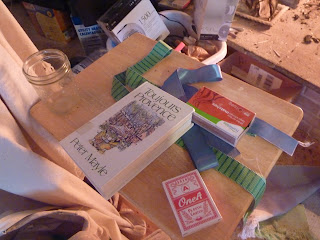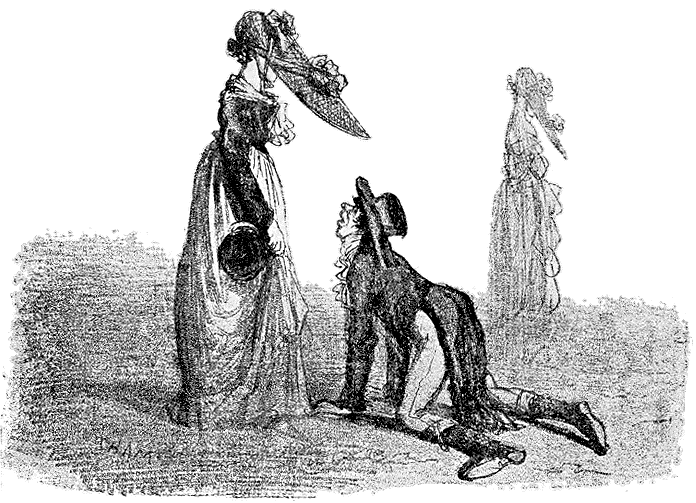Some books are terrible. Some books are amazing. Some start off great, and falter and the end. Others, start terribly but somehow pull it off in the end. Some have a mixture of characters that make you at once want to re-read in a day, and burn it in the fire. The books that are amazing are never amazing in the same way as another. "The Kite Runner"'s plot never stopped moving; Jane Austen could never fail to develop a character in some way; Agatha Christie's Hercule Poirot will always be pompous, and Sherlock Holmes almost mad in his correct deductions. With "A Room With a View", I felt that I would be studious. I would copy out passages that were clever or confusing; I would read a few chapters a day, and finish when a few chapters per day would allow. In the beginning, this all seemed plausible. I laboriously copied out passages, and liked his writing; the plot seemed the kind that would slowly move forward, and lull to a finish.
But soon, things started to happen; the Emersons were ubiquitous, and the father's insights were long and I found the copying tedious. So, I gave it up; that is to say, I decided to simply read, look up the occasional word that wanted a definition, and put a small mark by the passages that I will one day return to, and copy over. This I found much more pleasing. And I abandoned the silly business of reading only a few pages a day. I have read more in the last three days than the four before, from when I started to read it.
I liked it, immensely. The characters were either hilarious, insightful, knowing, or otherwise moving the plot along. Forster's writing, though sometimes rather hard to understand, was beautiful and also descriptive. I sat beside Lucy in the carriage, I staid at the pension with her, I saw the church, saw the man stabbed, and I saw Italy. All without leaving Delaware. It was really quite something. If my unwillingness to copy passages struck you as reflecting his quality of writing, then I strike my words. It was his clever wording and insight, that's passages numbered at times four a page, that discouraged me, and slowed my progress considerably.
I found Lucy Honeychurch a worthy heroine. She was ignorant of quite a lot of the world, true, but she was driven to learn all that she could. Her not knowing only made the story more interesting. Her cousin's sheltering of Lucy did not help, but Miss Lavish did, by taking her Baedecker and leaving her for an old acquaintance. But, for the most part, it is by Lucy's own devices that she extricates herself from the watch of any guardian, and winds up witnessing a stabbing. I can't think of any other character quite like her; I think she is one of my favorites.
Well, another week, another novel. I must now read Emma; I know that I still have four school books to read, but it must be done. It will be by no means bad. I am only apprehensive of the undertaking. fifty pages in, I shall feel right at home. But I am going to take a short break, to read some nonfiction.
I read a book called "Sleep:The Mysterious Third of Your Life" by Jonathan and Marianna Kastner, and enjoyed it immensely. It was the perfect book to read before bed; nothing puts at ease more than reading about sleep study patients who helped to prove that it is possible to fall asleep with your eyes taped open. You just feel grateful. In addition, I got to learn all about the cycles of sleep, and know when I had got good or bad sleep. All in all, informative, easy to read, and a perfect before-bed book. I would by all means contact them, but they published this book in May 1968. I expect that they were at least in their thirties at the time, so I am afraid that they are in a nursing home, with probably very little memory of their book. It is a shame, for I would have loved to write them.
Next up, nonfiction, and holiday books (A Christmas Carol, etc.). Then: Emma. WIsh me luck.
 Well, my heating's being faulty again. It's about 64 degrees upstairs, so I'm in the basement, having a fire. The aesthetics aren't the fanciest, but I made a little place to read, next to what I would guess is a table saw.
Well, my heating's being faulty again. It's about 64 degrees upstairs, so I'm in the basement, having a fire. The aesthetics aren't the fanciest, but I made a little place to read, next to what I would guess is a table saw.









 Today is the 234th birthday of Jane Austen! Dearest Jane was born on December 16th, 1775, "to George and Cassandra Austen at Steventon rectory." (Hampshire, England) "She was the eighth child and second daughter behind brothers James, George, Charles, Francis, Henry, Edward and sister Cassandra." (*Copyright JaneAusten.org: I couldn't get that straight.) 234, wow! And this means that the 200th anniversaries of her novels are coming up in the next decade! S&S in 2011, P&P in 2013, and Emma in 2015! Very exciting!
Today is the 234th birthday of Jane Austen! Dearest Jane was born on December 16th, 1775, "to George and Cassandra Austen at Steventon rectory." (Hampshire, England) "She was the eighth child and second daughter behind brothers James, George, Charles, Francis, Henry, Edward and sister Cassandra." (*Copyright JaneAusten.org: I couldn't get that straight.) 234, wow! And this means that the 200th anniversaries of her novels are coming up in the next decade! S&S in 2011, P&P in 2013, and Emma in 2015! Very exciting!
















